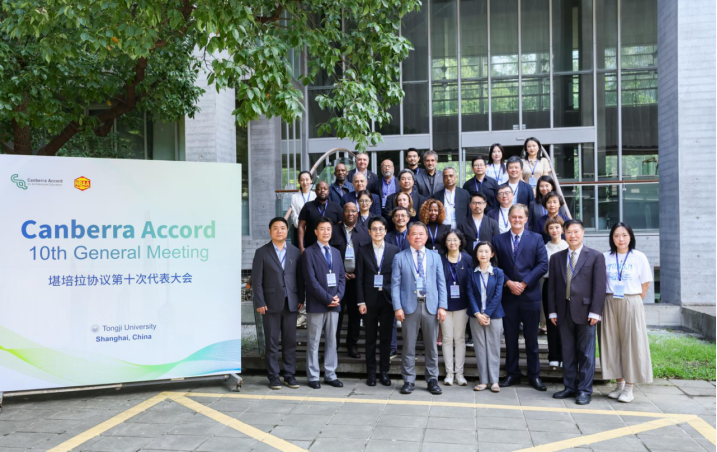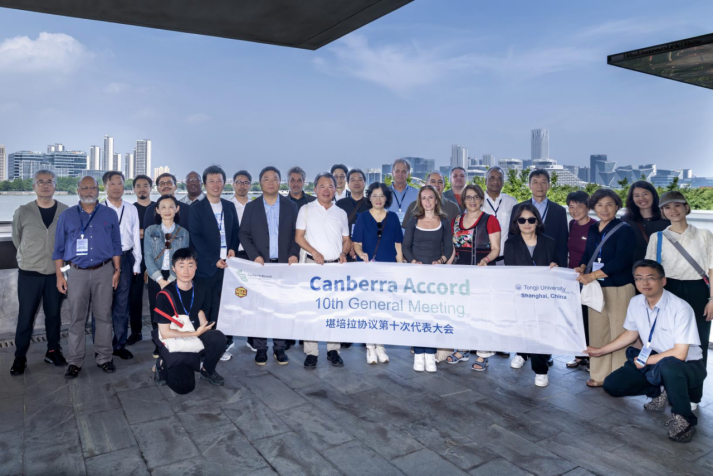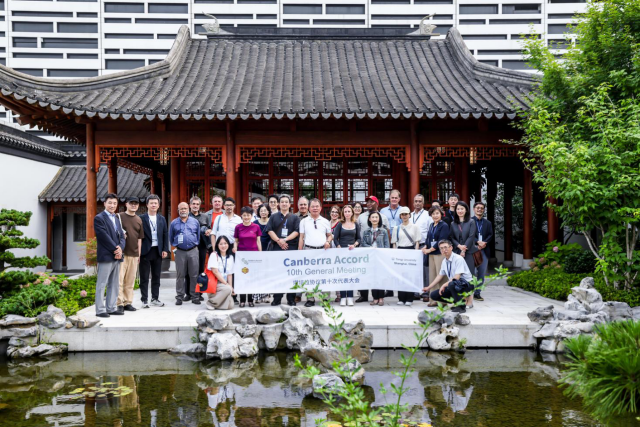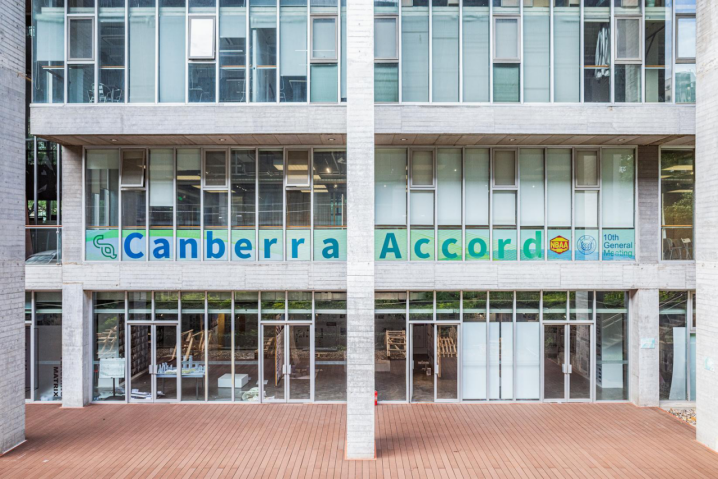
From June 25 to 28, 2025, the Tenth Congress of the Canberra Accord was grandly held at Tongji University. This marks China's second time hosting this top international architectural education event, following the third congress in Beijing in 2011.

The congress brought together representatives from Mexico, Canada, Hong Kong (China), Taipei (China), Japan, South Korea, the United States, South Africa, Bangladesh, and other regions. Participating institutions included architectural education accreditation bodies such as the Canberra Accord on Architectural Education, Mexico's Council for the Evaluation of Architectural and Human Settlements Education, Canada's Canadian Architectural Certification Board, and many others.

During the event, Tongji University showcased the Chinese benchmark in international architectural education. At the opening ceremony, Vice President Li Xiangning of Tongji University stated, The Canberra Accord, guided by the principle of 'substantial equivalence,' breaks down national barriers. Tongji University, with its 'open, inclusive, and innovative' academic ecosystem, is contributing Chinese wisdom and solutions to global architectural education.

Throughout the congress, Li Zhenyu, Secretary of the Foreign Affairs Committee of the Architectural Society of China and a professor at Tongji University, led delegates on tours of the CAUP's history museum and Built Environment Technology Center. Wang Yi, head of the Architecture Department, guided guests through an exhibition on the department's teaching evaluations, highlighting Tongji's unique charm and innovative strength in architectural education.
The technical inspection routes also demonstrated the close connection between Tongji's design and Shanghai's urban development, integrating architectural design, cultural heritage, and the Canberra Accord's principle of cultural diversity.
The successful hosting of this congress comprehensively demonstrated China's remarkable achievements in the architectural field. It solidified China's central position in global architectural education and showcased China's technological hard power and cultural soft power to the world through Tongji University.

 ABOUT US
ABOUT US




